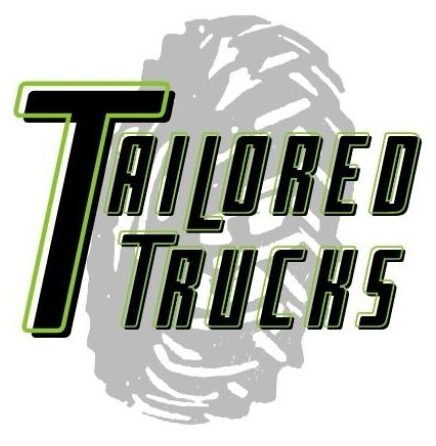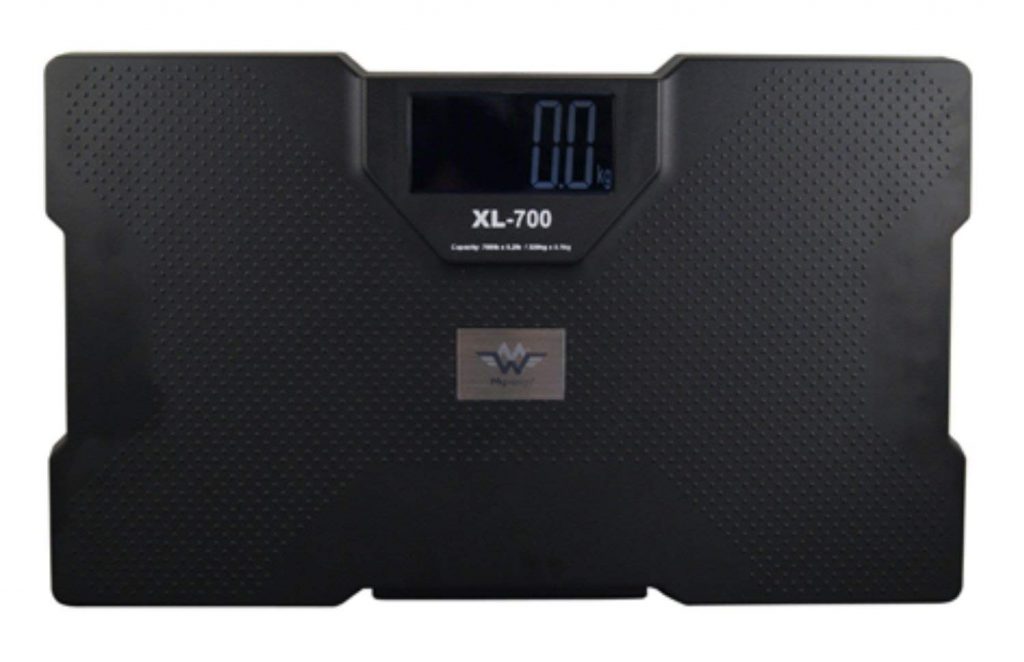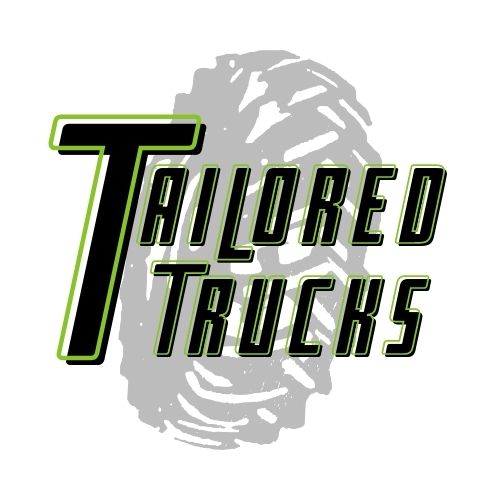You may be towing for the first time, have come across an article that mentions tongue weight, or may see a max tongue weight listed in your owner’s manual.
Either way, you have come to the right place. This article will walk you through what exactly trailer tongue weight is and how it can be measured.
Tongue weight is the amount of weight that is exerted on a trailer hitch from the trailer. It is important to know the trailer tongue weight to know that you are towing safely and have not exceeded the payload capacity of your vehicle. The tongue weight of a trailer should be between 10-15% unless stated otherwise by the manufacturer.
There are three main ways to weigh your tongue weight and that is with a:
- Commercial Grade Truck Scale
- Bathroom Scale
- Tongue Weight Scale

What is Trailer Tongue Weight?
Tongue weight is the amount of weight that is exerted on a trailer hitch on a vehicle.
It tells you the amount of weight that is being held up by the towing vehicle.
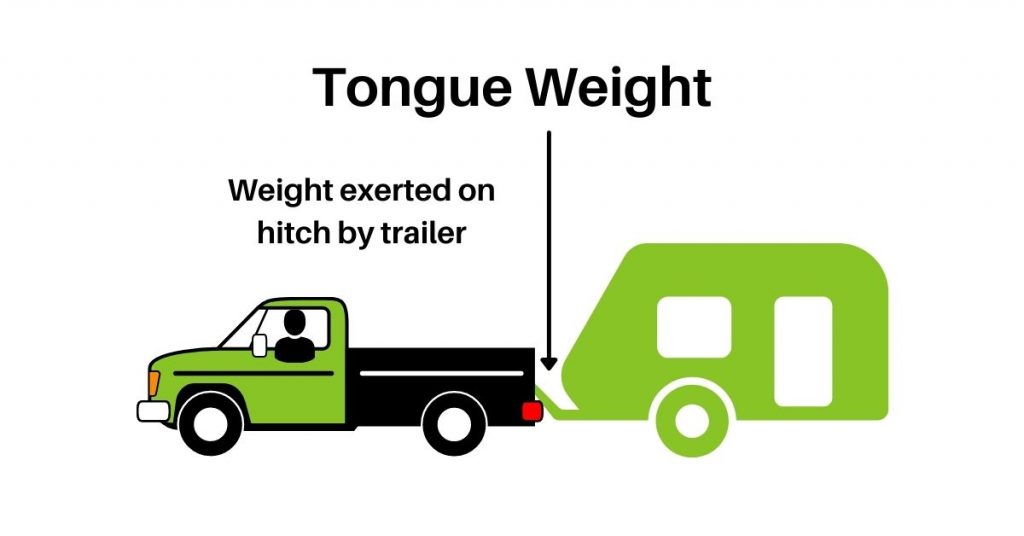
Tongue weight is quite different than towing capacity. Towing capacity refers to the amount of weight that can be pulled by a truck and the tongue weight is only the amount of weight that the truck actually experiences due to the trailer being attached.
What’s the importance of Tongue Weight?
Knowing the tongue weight of your trailer is necessary for three reasons.
- It reduces trailer sway
- Determine whether payload capacity is exceeded
- Ensures the tongue weight can be handled by the towing vehicle.
Trailer Sway
Trailer sway is a very dangerous phenomenon that occurs on the road. Unfortunately, not everybody who loads a trailer thinks about the weight distribution of the contents of the trailer.
Trailer sway is the uncontrollable nature of an imbalanced trailer. With poor weight distribution in the trailer, any small change in force can cause the trailer to swing out of control. When the tongue weight is appropriately measured, trailer sway is virtually non-existent.
The video below is a great, quick demonstration of this importance
Payload Capacity
Payload capacity is the maximum amount of weight that can be exerted on any vehicle. It is a value that is calculated from the GVWR.
Related: What is GVWR?
Payload Capacity is calculated by subtracting the curb weight from the GVWR (Gross Vehicle Weight Rating). This value is the maximum amount of weight that can be added to the vehicle in terms of cargo, passengers, AND TONGUE WEIGHT!
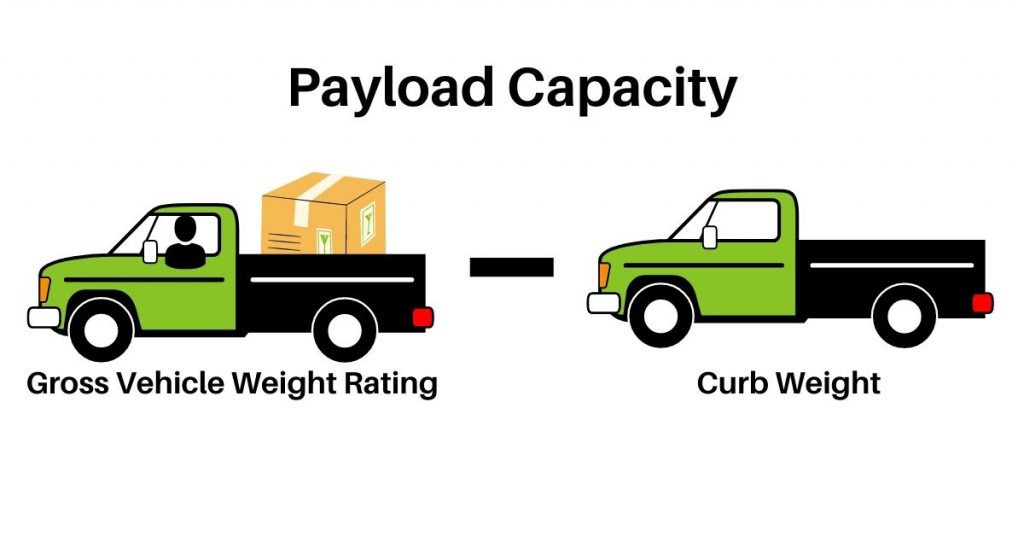
People who tow often forget that payload capacity must be a concern. It is easy to make sure that you are not towing more than your truck can handle, but you also need to make sure that the tongue weight of the vehicle will not cause the payload capacity to be exceeded.
This means that the cargo weight, passenger weight, plus tongue weight cannot ever exceed the payload capacity of the vehicle.
In order to make sure this doesn’t happen, you need to know the tongue weight of your trailer.
Maximum Tongue Weight
There are three ways in which trailers can be attached to a truck with conventional towing.
The hitch ball could be installed on the bumper, a hitch receiver could be installed with a trailer without a weight distributing hitch, and a trailer with a weight distributing hitch can be attached to a hitch receiver.
Oftentimes, trucks and other vehicles will list a maximum trailer hitch tongue weight. For example, Ford F150 lists the maximum tongue load for trailers attached to a bumper and with/without weight-distributing hitches. (See chart below)
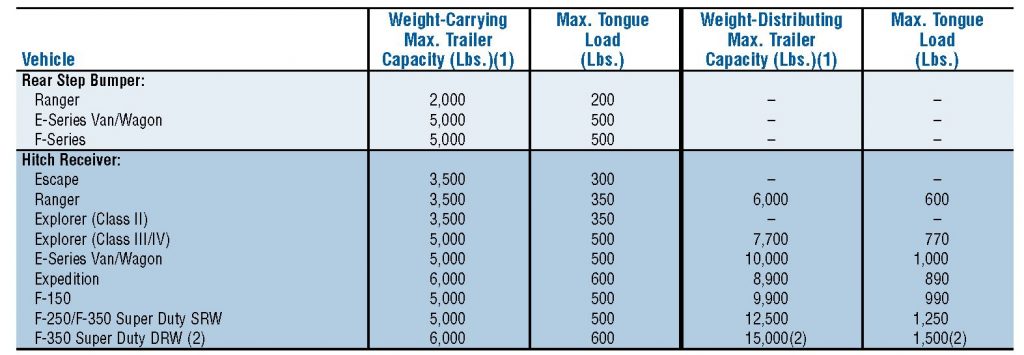
There are also limitations on the type of hitch receiver that will determine whether or not you are trying to tow more than your hitch can carry. Curtmfg does a great job breaking down the different types of hitches and hitch classes if you’re interested.
| Max Tongue Weight | |
| Class I | < 200 lbs |
| Class II | < 350 lbs |
| Class III | < 800 lbs |
| Class IV | < 1000 lbs |
| Class V | < 2700 lbs |
What is the best tongue weight?
For safety reasons, tongue weight should be between 10-15% of the total trailer weight.
This will provide a well-distributed trailer weight that will reduce trailer sway. This tongue weight will typically allow the trailer to stay flat, which is pretty important. You want to make sure that when you load a trailer, the back end of the trailer is the same height as the front end.
How to determine the Max Tongue Weight?
Max tongue weight may be listed in the owner’s manual (such as with Ford) but may also just simply need to be calculated.
The absolute max tongue weight of a vehicle will be the towing capacity times 10-15%.
So how do you calculate towing capacity? Well, I made an article just on that to walk through a full example of How to Calculate Towing Capacity (and included a calculator to make it easier).
But you must remember this is the max tongue weight if towing the max trailer weight. At any given point, the max tongue weight is simply the trailer weight times 10-15%.
This trailer weight is both the curb weight plus any cargo added to the trailer. This can be measured by either using a commercial scale or calculated manually.
You can find the curb (or base weight) of the trailer in the owner’s manual and then you will need to weigh everything you add to the trailer and add this together with the base weight. This will give you the total trailer weight.
How to measure tongue weight
There are three ways to measure tongue weight. In either of these three ways, the key is to isolate the weight that is exerted on the trailer hitch.
When taking the measurement in any of these methods, you need to make sure that the tongue weight does not exceed 15% of the trailer weight or any other listed capacity. This means that the distribution of the weight in the trailer may need to be adjusted a few times before these conditions are met.
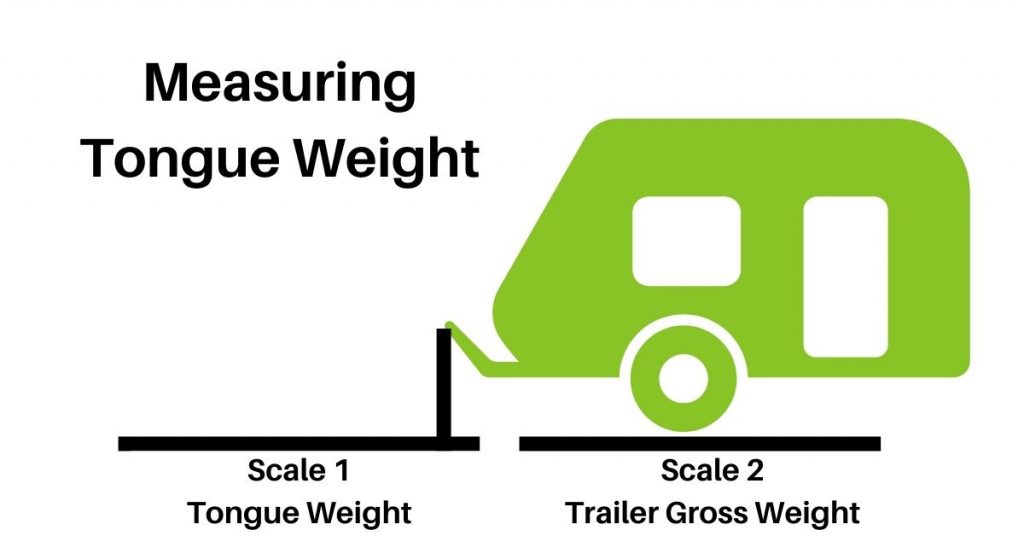
With a CAT Scale/Truck Weigh Station
A CAT scale stands for a “Certified Automated Truck” scale. It is a commercial-grade truck trailer scale. They are equipped at many truck stop weigh stations.
To weigh your tongue weight at this type of scale you must:
- Weigh your truck AND trailer completely on the scale
- Isolate the weight of your truck (get on the scale with the trailer attached, but do not let the trailer wheels get on the scale)
- Remove the trailer and weigh the truck
After you have these three values you can take the weight from number 3 and subtract it from number 2 to get the tongue weight.
Then to determine whether this trailer weight is within the 10-15% range, you can subtract the weight from number 3 from the weight in number 1. Then you must take the tongue weight value calculated above and divide that by the weight calculated in this step.
If the value is between 0.1 and 0.15 then you are within the right spec.
The video below does a great job explaining this procedure.
With a Bathroom Scale
Because it can be challenging to get to a truck weigh station, you may want to measure your tongue weight at home.
Believe it or not, bathroom scales can be used to measure the tongue weight of your trailer. You must consider the maximum weight of your bathroom scale. Before you test the tongue weight on a bathroom scale, you should calculate the 10-15% optimal tongue weight and determine whether your bathroom scale can handle that weight. You can risk breaking your scale if overexerted.
The steps to weigh the tongue weight on a bathroom scale is to:
- Attach the trailer to the truck and load the trailer
- Add a plank to the bathroom scale
- Lower the trailer jack onto the wood (if the trailer does not come with a jack, you will need to find a way to connect the trailer hitch to the bathroom scale
- take measurement
Here is an example of doing that.
There are many bathroom scales that only go up to a few hundred pounds. But for trailers less than 3,000 lbs, this should be able to do the trick so long as the trailer is not extremely front-loaded.
For larger towing capacities, there are bathroom scales that can go as high as 700 lbs, such as the one below.
With a Tongue Weight Scale
If you don’t need or want to do deal with a bathroom scale, there are specific tongue weight scales that can measure tongue weight very easily and up to very high capacities.
Measuring tongue weight with a tongue weight scale is simple:
- Load the trailer such that it is well balanced
- Raise the tongue weight scale to the height of the hitch (with wood, blocks or other structures)
- Rest the trailer hitch on the tongue weight scale
See the video below for a good example.
Tongue weight scales are great because they have higher capacities than bathroom scales and are easily portable. The main brand is Sherline and has scales that go up to 5,000 lbs which means that if you are towing a trailer up to 50,000 lbs, this can measure a tongue weight of 10%.
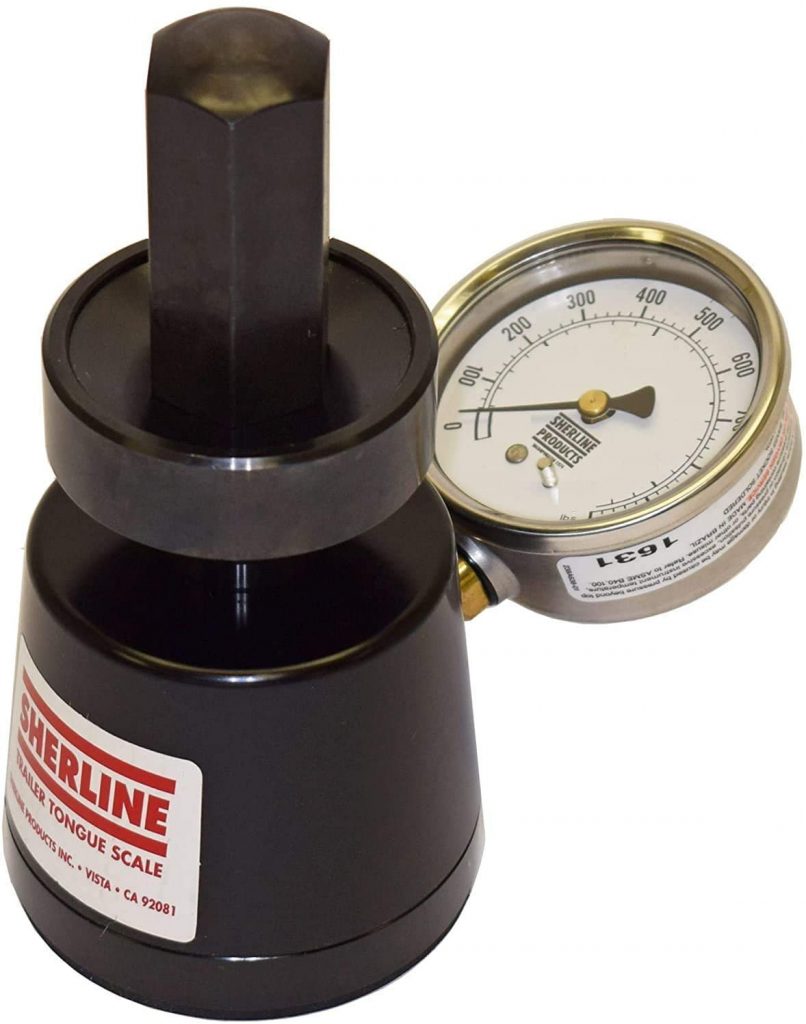
Sherline LM 1000 lb Trailer Tongue Weight Scale
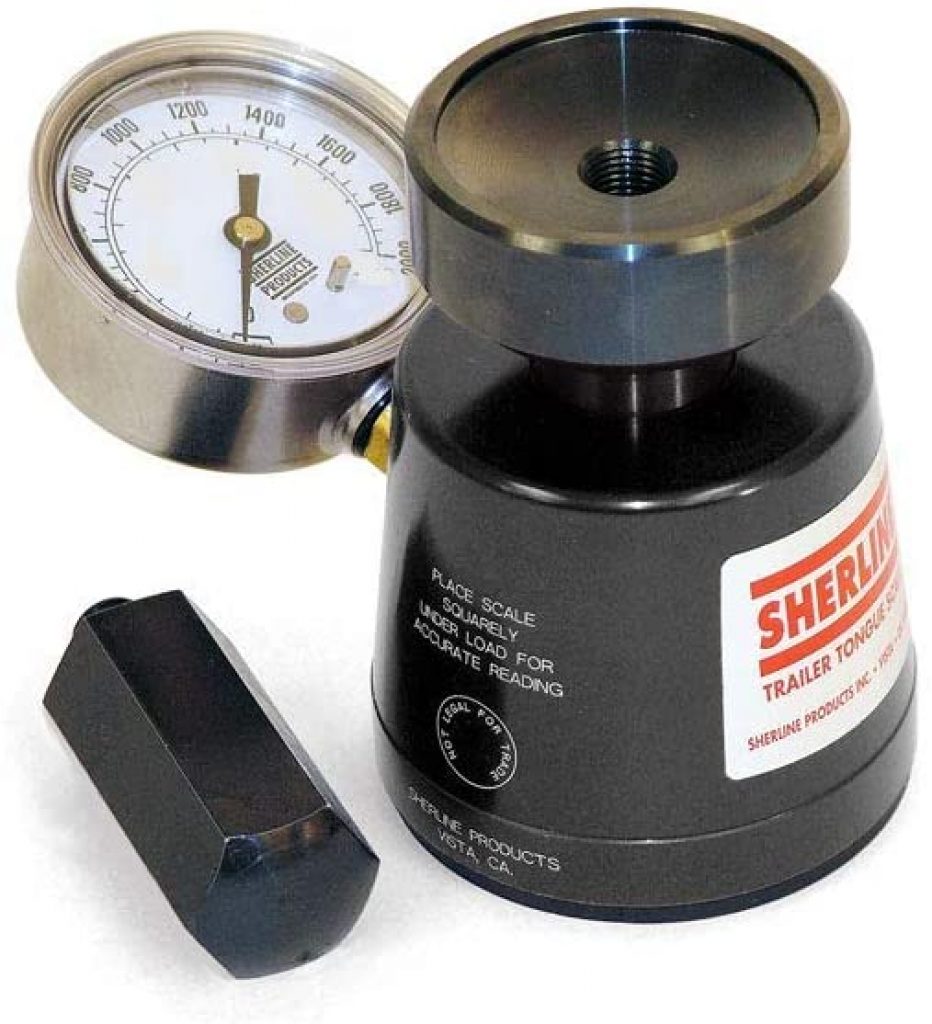
Sherline LM 2000 lbTrailer Tongue Weight
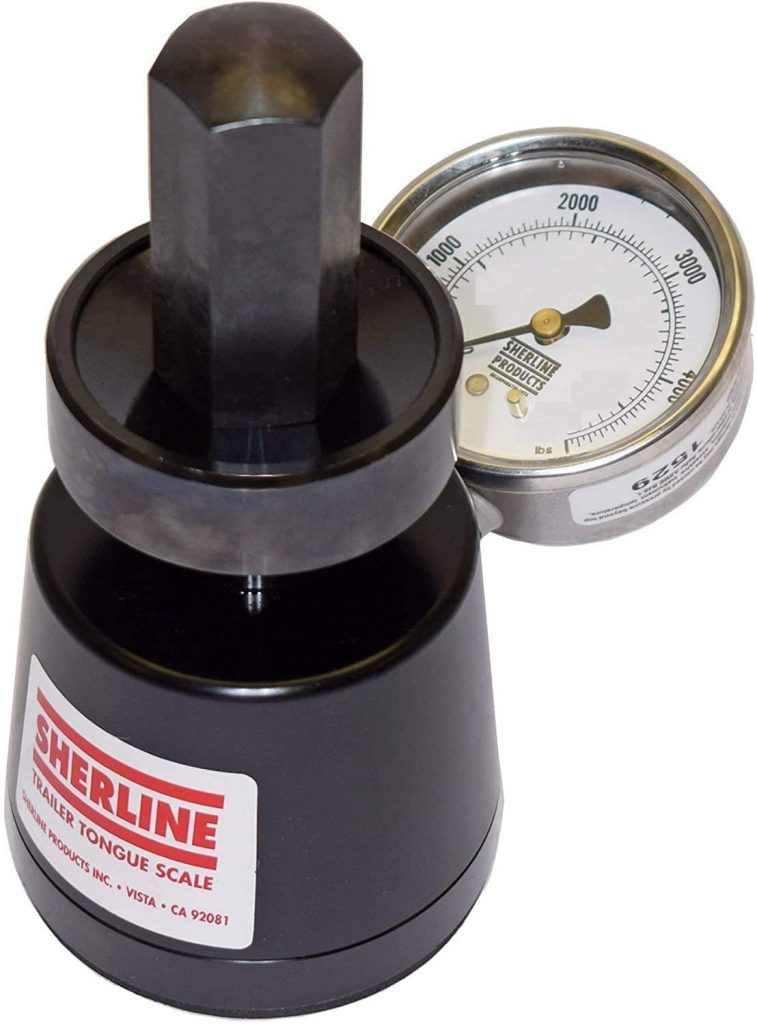
Sherline LM 5000 lbTrailer Tongue Weight Scale
Conclusion
Tongue weight is the amount of weight that is exerted on a trailer hitch from the trailer. It is important to know the trailer tongue weight to know that you are towing safely and have not exceeded the payload capacity of your vehicle.
There are three main ways to weigh your tongue weight and that is with a:
- Commercial Grade Truck Scale
- Bathroom Scale
- Tongue Weight Scale
In my opinion, the best way to measure the tongue weight is with the specifically designed tongue weight scales which can accommodate the largest weight with the most convenient and portable usage.
